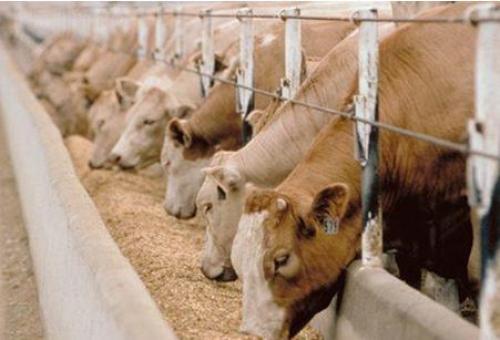Australia Strengthens Beef HGP Testing for Export to China

Following Russia’s ban on the import of Australian frozen beef last month, the Australian government quickly took action to ensure that China would improve the safety of beef products. Starting today, beef for export to China will undergo more rigorous inspections to ensure that all products do not contain hormone growth promoters (HGPs) in order to meet Chinese inspection regulations.
From May 8 onwards, the Code of Conduct for the Screening of Hormone Growth Promoters (HGP) in the Australian Chinese market will require the enhancement of the National Vendor Reporting (NVDs) procedure on the basis of the “National Residue Surveyâ€.
China has always maintained a high standard in the detection of HGP residues. China hopes that imported Australian beef will not contain HGP residues. The Australian Department of Agriculture (DAFF) issued a market access proposal yesterday to further convey and clarify China's HGP testing requirements to Australian companies that export beef to China.
DAFF pointed out that "China has classified synthetic HGP including trenbolone, acetate and zearalan as banned veterinary drugs, and animal foods cannot contain such ingredients; at the same time, the Chinese government stipulates that it is higher than normal physiological level. The natural HGP that can be used for medical purposes such as estradiol, progesterone, and testosterone cannot also appear in animal foods."
According to the department’s recommendation, from the 8th onwards, Australian beef products sent to China must come from animals that have not been reared by HGP and contain no more than normal levels of residues. When obtaining live cattle from other sources, the processors should require the live cattle seller to sign the declaration documents. If the inspection shows that there are HGP violations, they will be investigated by the Ministry of Agriculture. In addition, beef that is suitable for export to China must be routinely tested for HGP residues.
In January of this year, when Russian food regulators conducted tests on demethylandrotriene (commonly known as “Trenboloneâ€), it was found that some Australian beef products apparently contained hormone growth promoter (HGP) residues and immediately decided to stop importing Australian frozen food. beef. Since then, several important consumer countries including China have initiated dialogues with Australia, requesting greater protection from the removal of HGP residues.
Australia has been implementing a national residue survey test procedure to routinely inspect meat products provided by export-qualified companies in order to investigate illegal residues. Tom Maguire, spokesman for the Australian Meat Industry Commission, said that from today on, Australia will adopt the NVD process, requiring sellers to submit residue declarations based on export batches, confirming that there are no HGP residues. The Australian beef exporters also believe that it is necessary to take this measure to ease the concerns raised by China regarding the ban on Russian imports.
The DAFF stressed that the Chinese customs will carry out HGP residue testing when Australian beef products are brought into Hong Kong. If any synthetic hormones or any natural hormones are found to be exceeded, they will immediately refuse the batch of imports and may revoke the factory's import qualifications.
It is understood that more and more Australian beef producers tend to use pro-growth agents when feeding herbivorous cattle. It has become the practice to use HGP in feedlots, and 80-90% of live cattle with pro-promoting agents are from breeding. field.
Industry professionals still have doubts about the implementation of the new regulations. Dougal Gordon, the Prime Minister of the Australian Breeding Association (ALFA), pointed out that in the Chinese market, synthetic HGP is obviously completely banned, but the level of natural hormones is difficult to grasp and there are some uncertainties. For example, he said that beef can be tested for estrogen, but this natural hormone can also be used to promote growth. Estrogen levels are naturally high or artificially added and may not be easily determined in actual practice.
The list of HGP beef products that are not accepted in Australia’s international market is getting longer and longer. Prior to China, the European Union, Russia, and Saudi Arabia joined the queue one after another. The total amount of beef imported from Australia in the last four months reached 250,000 tons.
In response to the changes in the Chinese market, Australian large-scale beef processor Teys Australia has begun to adjust its offer to better distinguish between HGP and non-HGP livestock. According to Beef Central, Teys’s offer price for both types of beef was lowered by 5 points and 10 points per kilogram respectively on Monday, considering the increase in live cattle supply. The company expects that its price gap will continue to expand in the future and will depend on the response of the meat market to the new regulations.
According to the latest data from the Australian Department of Agriculture, beef exports in April rose by 14% from the same period last year and 26% from the five-year average. For the current fiscal year ending April this year, the total amount of beef exports was 9.7305 million tons, of which four months were exported at more than 100,000 tons. In April, Australian beef exports to China remained strong, up 19% year-on-year to 13,859 tons, which was a four-fold increase over the five-year average.
Shanghai J.Shine Co.,Ltd , https://www.jshinechem.com